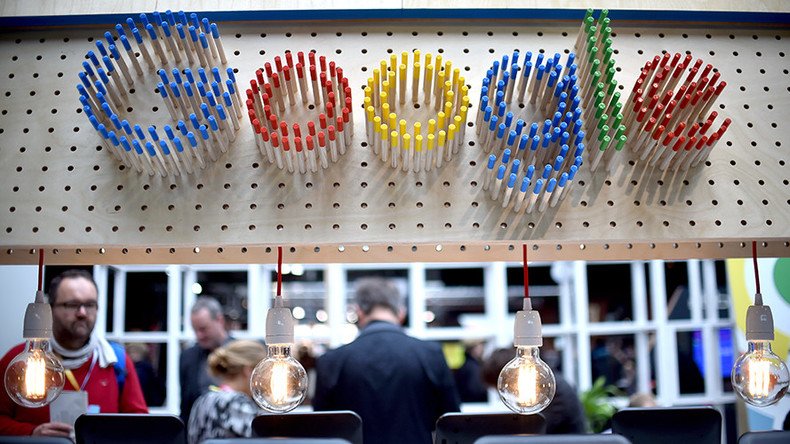Google pays scholars for research favoring company policy – ethics watchdog

Web giant Google has spent millions of dollars on studies in order to advance its corporate interests, sponsoring academia from leading universities such as Oxford and Harvard, claims a report by an ethics watchdog, which Google described as “misleading.”
The US-based non-governmental organization Campaign for Accountability (CfA) released its report Tuesday, alleging Google funds research to back its business and policy goals. The CfA has accused the company of following in the footsteps of the tobacco and fossil fuel industries.
Yesterday, CfA released a new report revealing the extent of Google's academic astroturfing. Read our research here: https://t.co/pjLUL3avDFpic.twitter.com/2m3DqWU8lS
— Accountability (@Accountable_Org) July 12, 2017
“Google uses its immense wealth and power to attempt to influence policy makers at every level,” CfA Director Daniel Stevens says. “At a minimum, regulators should be aware that the allegedly independent legal and academic work on which they rely has been brought to them by Google.”
The report, titled Google Academics Inc., revealed 329 papers on public policy matters published between 2005 and 2017, directly or indirectly funded by the search giant.
The research dealt with subjects like antitrust, privacy, net neutrality, search neutrality, patents, and copyright, with the number of papers surging at times when Google was threatened by regulations or had the opportunity to push them on its competitors.
More than half of those studies received direct payments, while the rest were financed by groups and institutions supportive of Google policy and legal agenda. Two-thirds of them, or 216 works, did not acknowledge the funding. Academics, think-tanks, economic consultants from major US and British institutions, including Harvard, Stanford, University of California Berkeley, Columbia, MIT, Oxford, and Edinburg University took part in Google’s “paid policy research.”
While the report lists some of the Google-friendly researchers, it does not specify how much they were paid for specific works. However, it says over half of the payments were received indirectly through Google-affiliated institutions and mentions scholarship programs like the Faculty Research Awards that grants up to $150,000 a year per scholar. In 2015, there were 184 projects the program supported.
READ MORE: EU slaps Google with $2.7bn fine for manipulation of search results
The CfA also indicates some universities, like George Mason University, which received $762,000 during the tenure of one of its professors, Joshua Wright, who produced at least four studies supportive of Google positions. The report mentioned that George Mason also backed the tobacco industry in the 1990s.
However, many of them do not meet commonly-accepted academic standards, the CfA says, adding that some were self-published and were not peer-reviewed. Despite that, their reach was extensive, with sponsored papers being cited “nearly 6,000 times in more than 4,700 unique articles” by other Google-funded authors, the CfA notes.
READ MORE: President Clinton? How Google 'bias' could be election's deciding factor (VIDEO)
In response, Google’s public policy director, Leslie Miller, called the CfA findings “highly misleading,” bashing the watchdog for refusing to reveal its own funders.
“Our support for the principles underlying an open internet is shared by many academics and institutions who have a long history of undertaking research on these topics – across important areas like copyright, patents, and free expression,” Miller wrote, saying that Google funding is guided by transparency and independence requirements.













